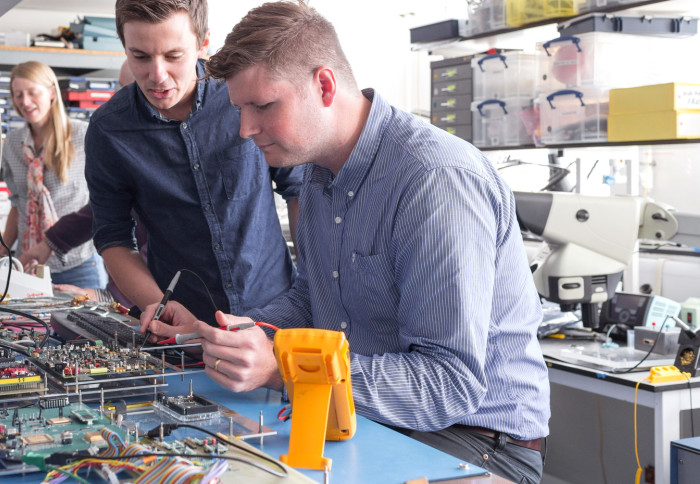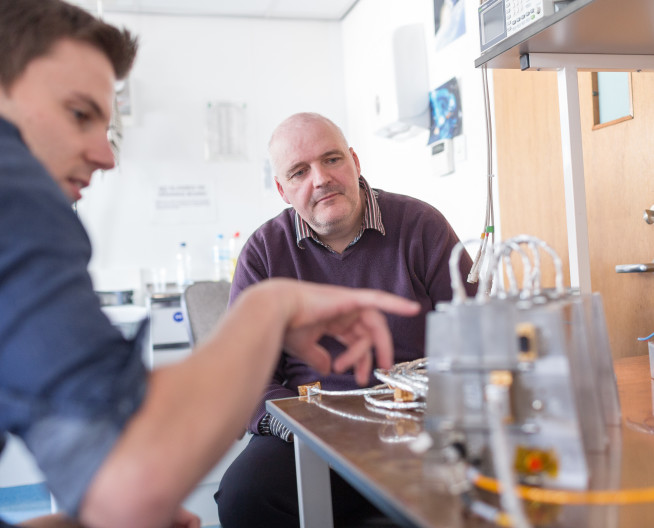
Imperial's Space Magnetometer Laboratory is among the recipients of the funding
Global S&T Development Trend Analysis Platform of Resources and Environment
| Researchers receive extra support during the pandemic | |
| admin | |
| 2021-08-03 | |
| 发布年 | 2021 |
| 语种 | 英语 |
| 国家 | 英国 |
| 领域 | 资源环境 |
| 正文(英文) | 
Imperial's Space Magnetometer Laboratory is among the recipients of the funding 
Imperial has distributed £7.8 million additional funding from UK Research and Innovation to protect College research and talent during the pandemic. The funding was awarded by UK Research and Innovation (UKRI) in spring 2020 to support research projects negatively impacted by the COVID-19 pandemic. The principles of the funding distribution were developed by the COVID-19 Response Research Group, chaired by Professor Nick Jennings, Vice-Provost for Research and Enterprise, and including the Faculty Vice Deans (Research). It determined that the primary function of the allocated £7.8 million funding should be to protect our research talent. The remaining funds were made available to Departments to use strategically within a prioritisation framework that ensured prioritisation of staff disproportionately affected by the disruption. Overall, 235 Imperial researchers and 141 awards across all Faculties were supported, primarily through contract extensions. Professor Nick Jennings said: "I am pleased to see the positive impact the emergency COVID-19 funding has had in protecting key aspects of the College's research. It has been fantastic and instrumental to receive this support so quickly from UKRI." The funding was life-changing to me. Dr. Hanbin Zhang Research Associate, School of Public Health The support made a real difference to Imperial researchers. Dr. Hanbin Zhang, Research Associate in the School of Public Health, received support in late 2020. He said: "The funding was life-changing to me - it enabled me to sustain my position in the UK, develop my research and collaborations which in turn allowed me to secure an MRC Early Career Fellowship in summer 2021. To me, this was more than just a funding extension - it was an impactful mechanism which provided me with the stability needed to take the next step in my research career despite the disruption." 
JUICE is a European Space Agency (ESA) mission to Jupiter and its Galilean moons. An Imperial engineering team is building a space magnetometer instrument for the mission. Their work was impacted when the pandemic began: “The initial effect of the pandemic was to bring the test campaign on our flight model to a complete stop." said Senior Instrument Manager Patrick Brown. "We received support in order to keep the JUICE project team going during the past year and once College reopened we were able to restart testing and deliver the flight instrument to the spacecraft.” The funding was absolutely instrumental in keeping the project team together. Professor Omar K. Matar, FREng Vice-Dean (Education), Faculty of Engineering Professor Omar K. Matar, Vice-Dean (Education), Faculty of Engineering, received support for the MUFFINS project, which develops pioneering technologies for the designs of subsea systems. He said: “The funding was absolutely instrumental in keeping the project team together. As a direct result of this funding, we were able to deliver against one of the main objectives of the project and delivered a key paper with our academic and industrial partners." |
| URL | 查看原文 |
| 来源平台 | Imperial College London |
| 文献类型 | 新闻 |
| 条目标识符 | http://119.78.100.173/C666/handle/2XK7JSWQ/335214 |
| 专题 | 资源环境科学 |
| 推荐引用方式 GB/T 7714 | admin. Researchers receive extra support during the pandemic. 2021. |
| 条目包含的文件 | 条目无相关文件。 | |||||
| 个性服务 |
| 推荐该条目 |
| 保存到收藏夹 |
| 查看访问统计 |
| 导出为Endnote文件 |
| 谷歌学术 |
| 谷歌学术中相似的文章 |
| [admin]的文章 |
| 百度学术 |
| 百度学术中相似的文章 |
| [admin]的文章 |
| 必应学术 |
| 必应学术中相似的文章 |
| [admin]的文章 |
| 相关权益政策 |
| 暂无数据 |
| 收藏/分享 |
除非特别说明,本系统中所有内容都受版权保护,并保留所有权利。
修改评论